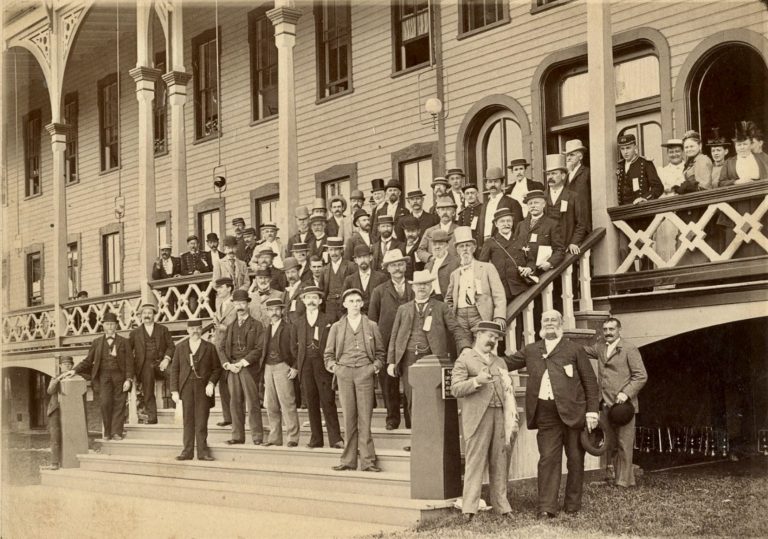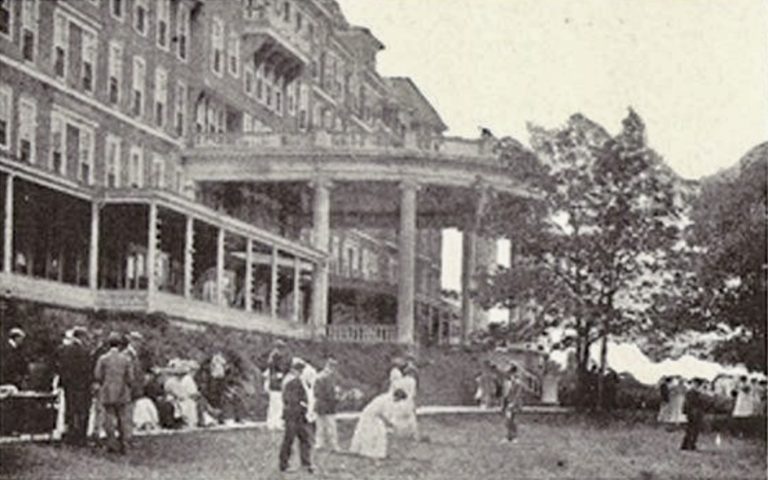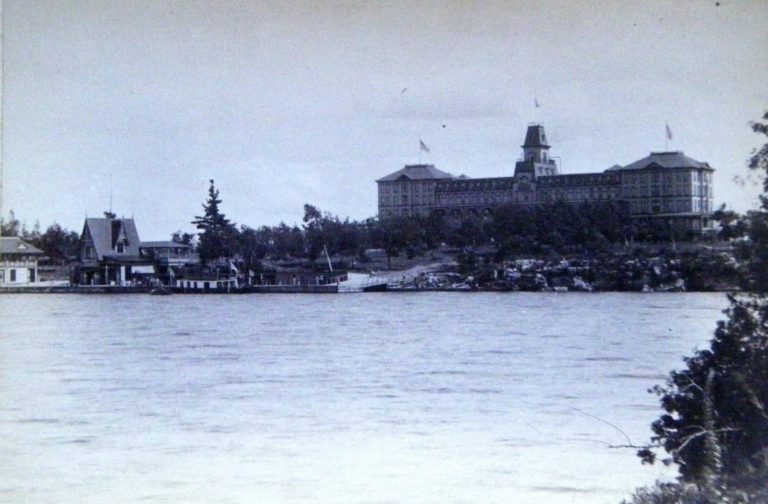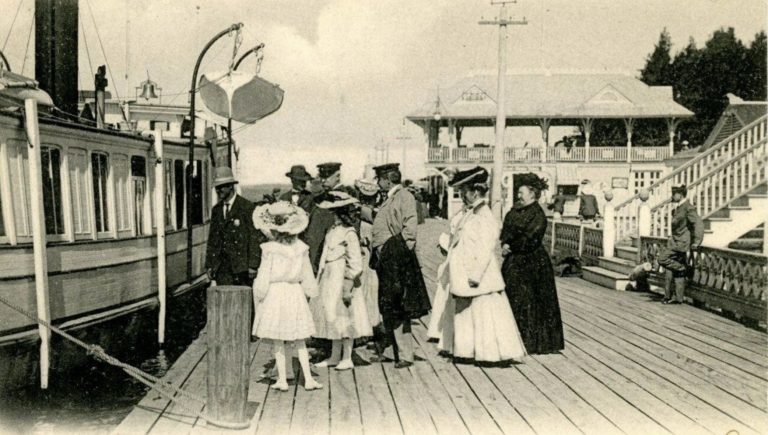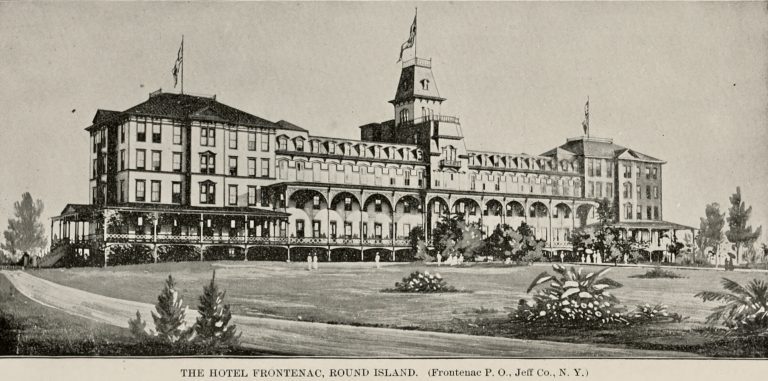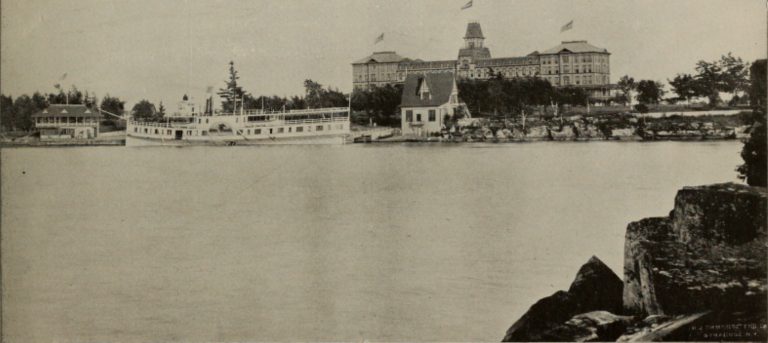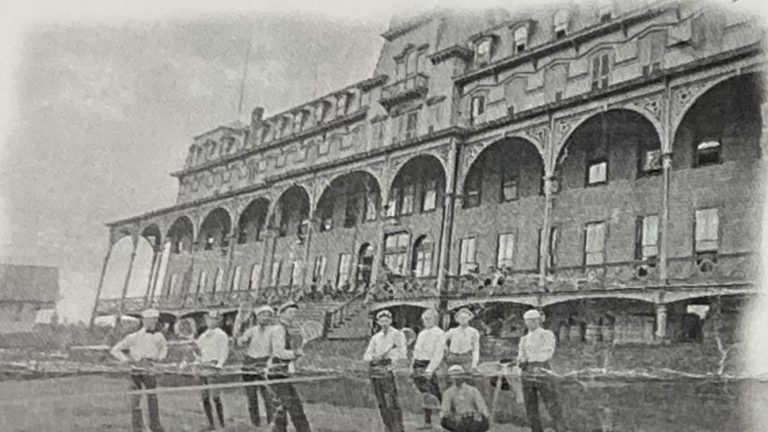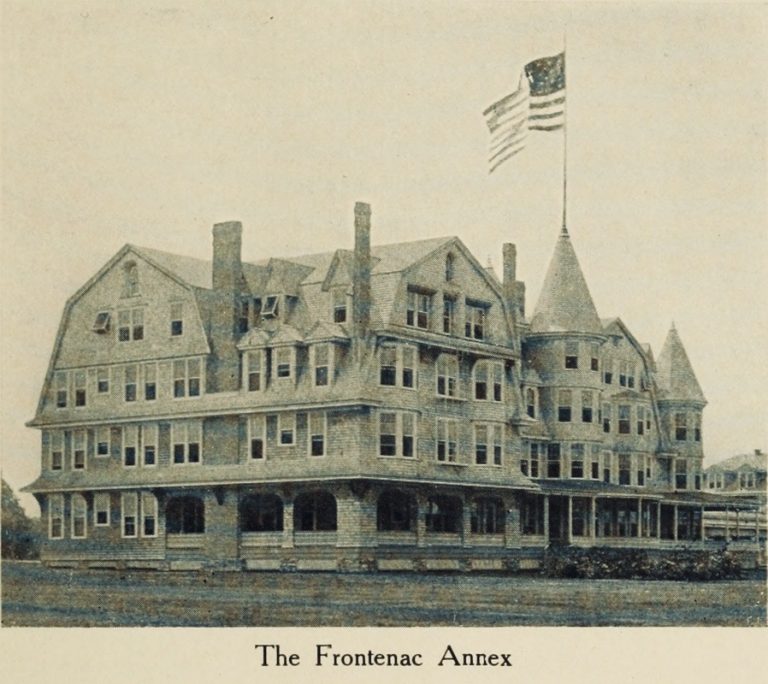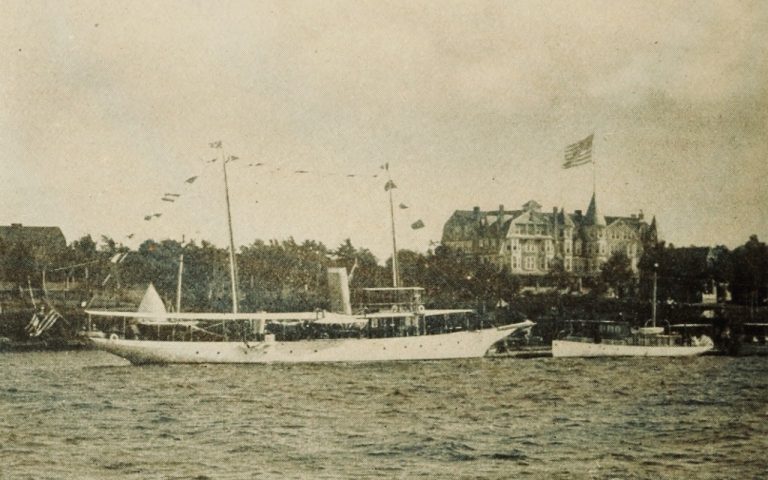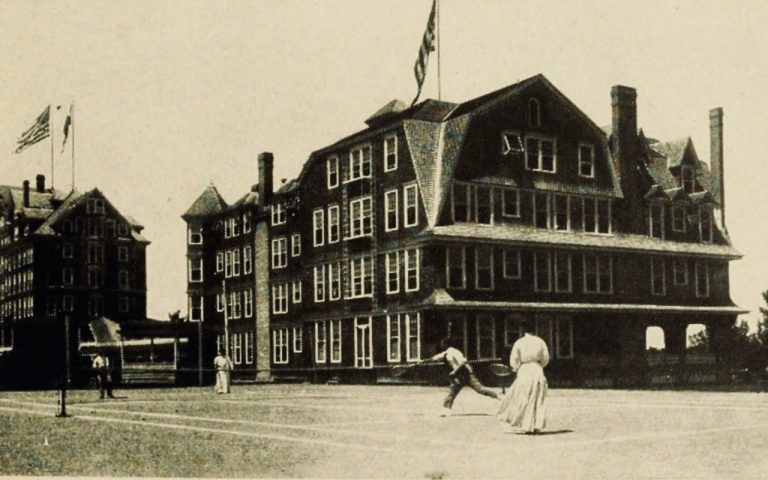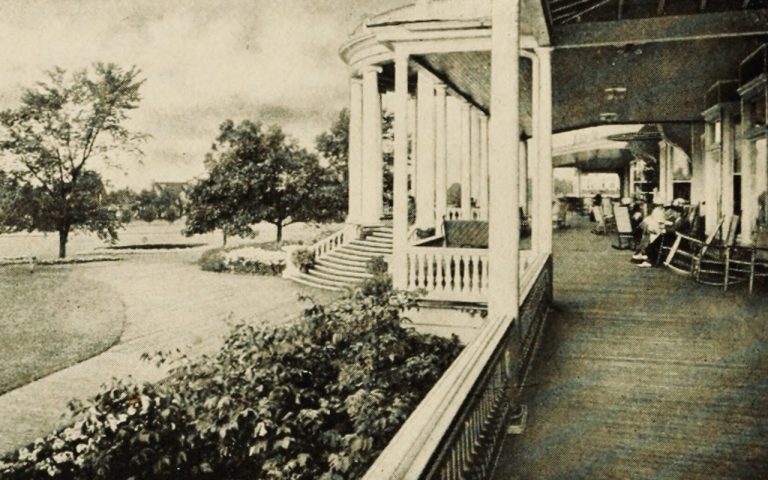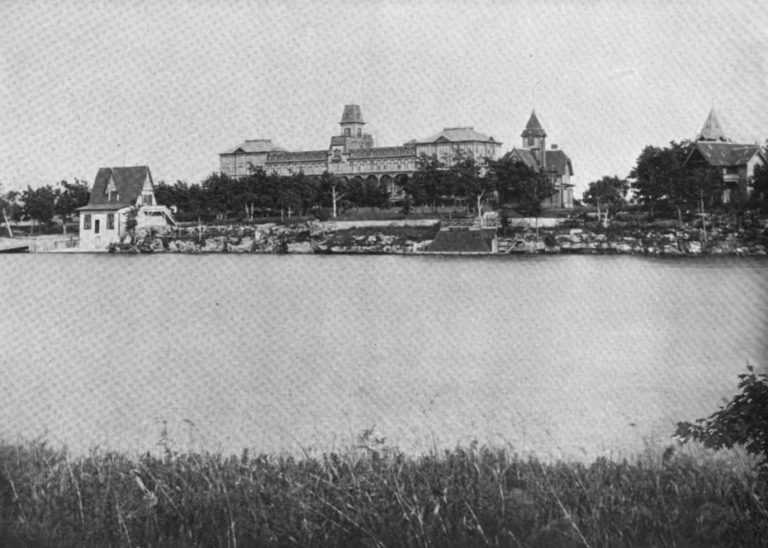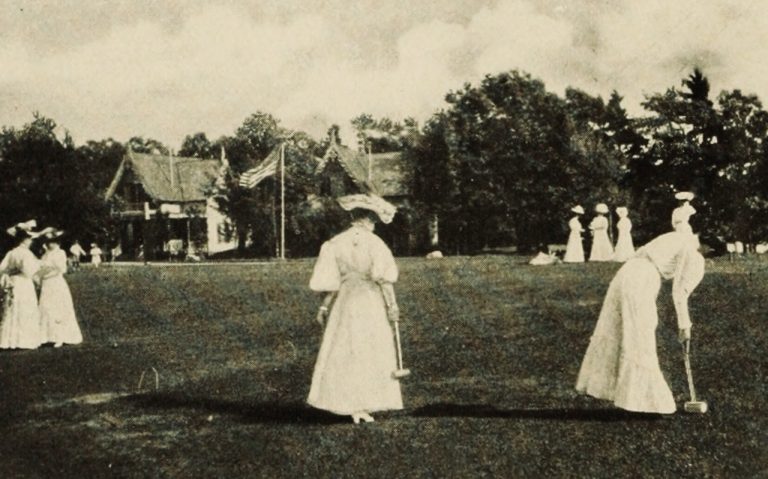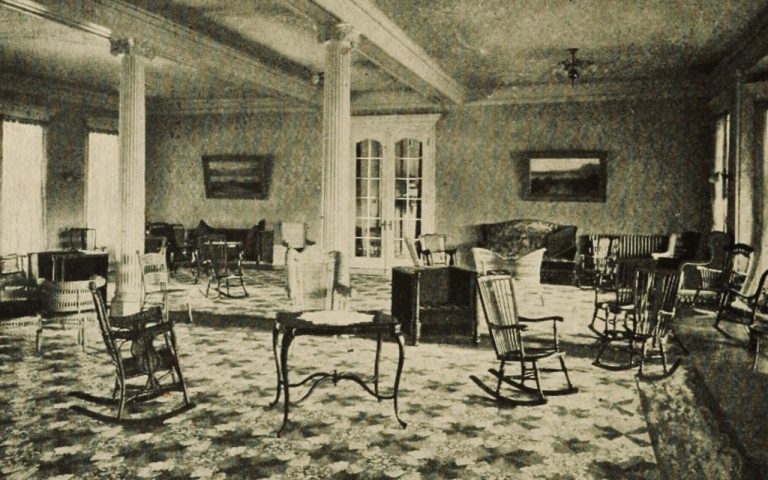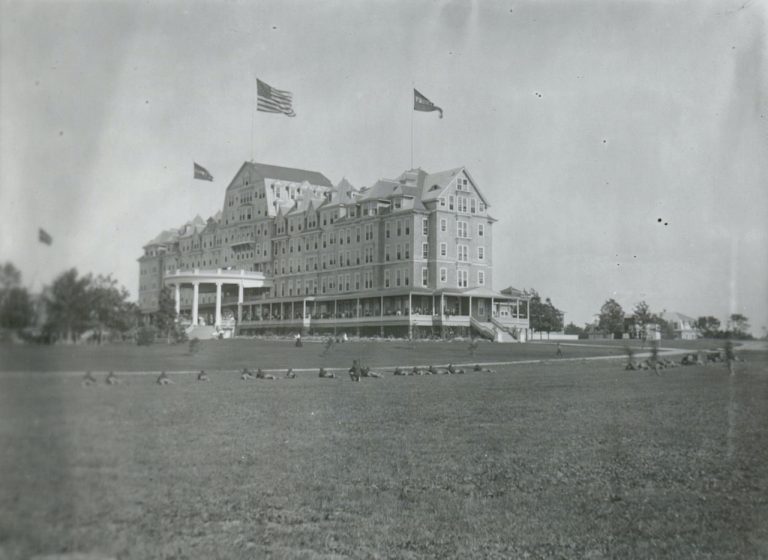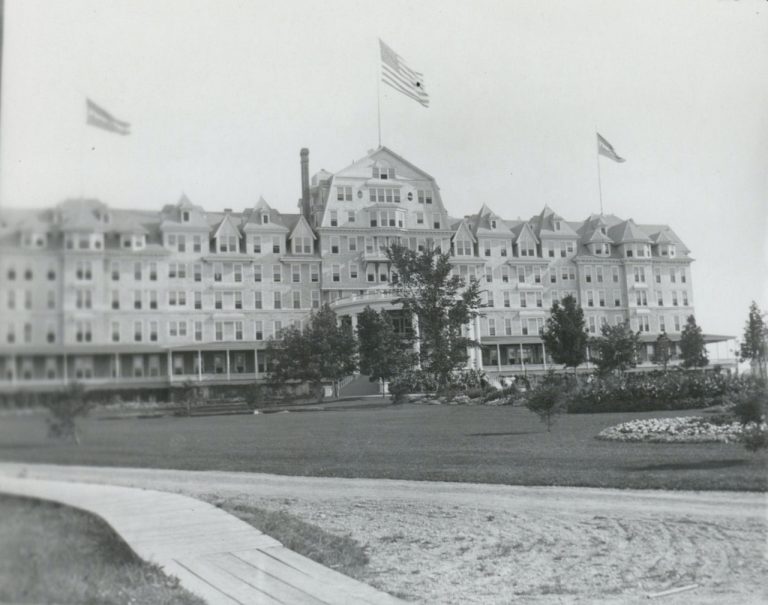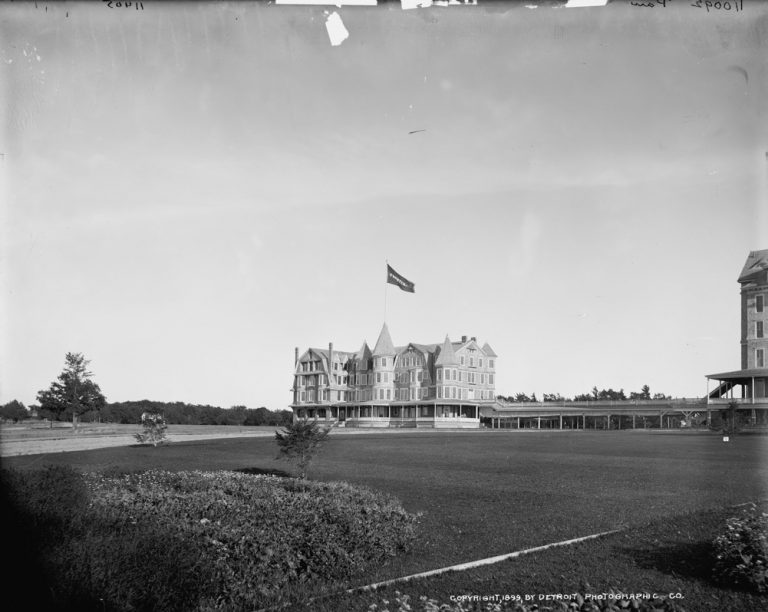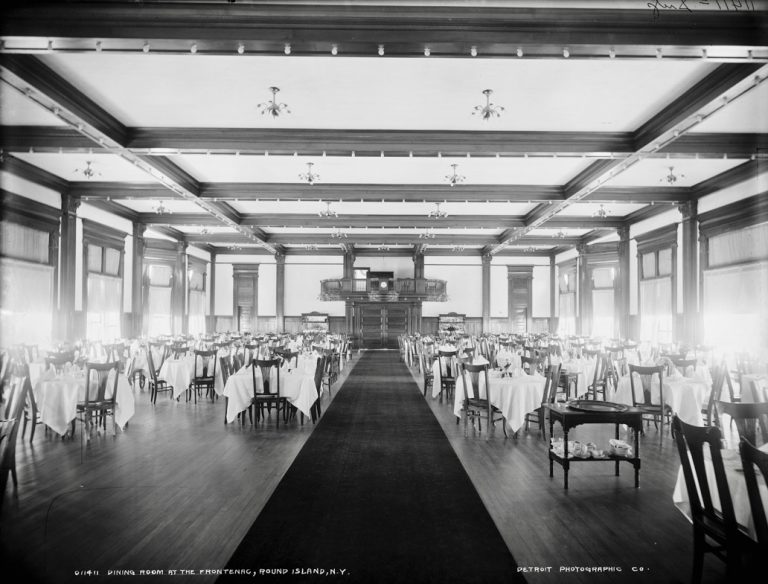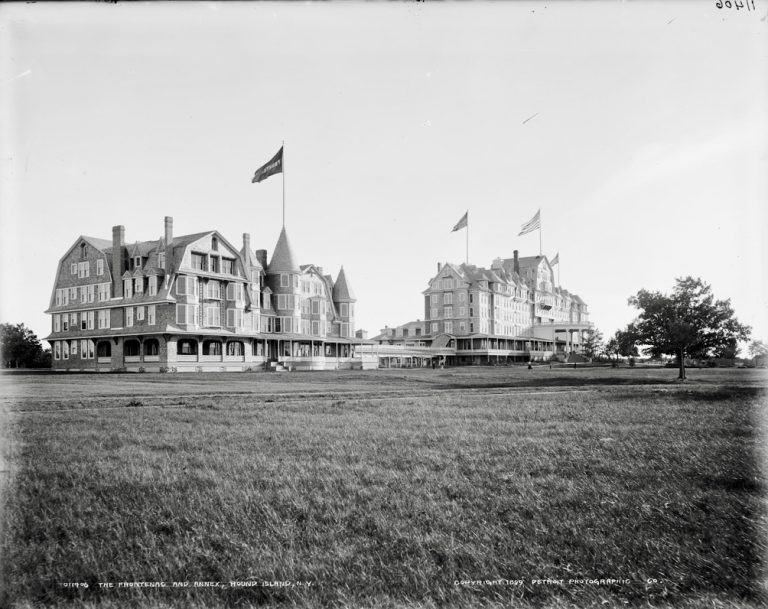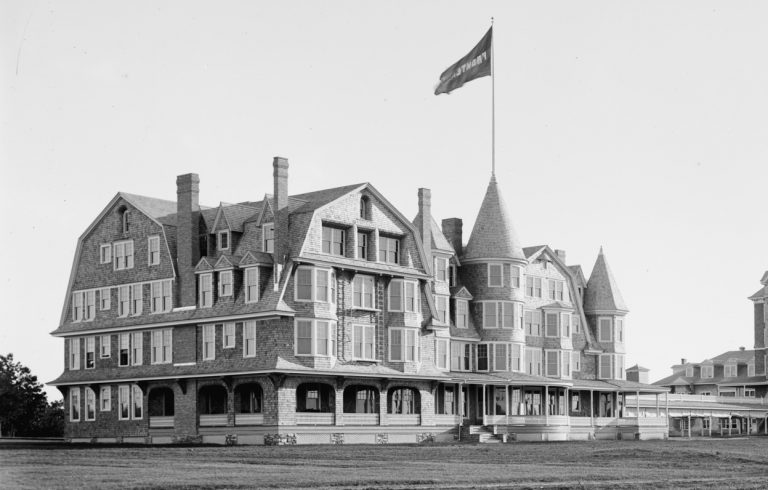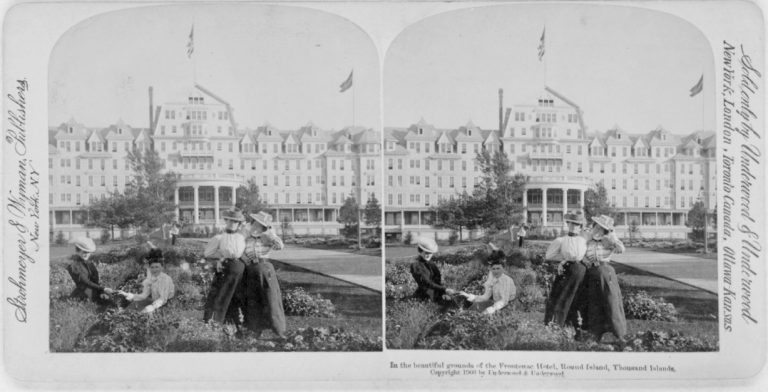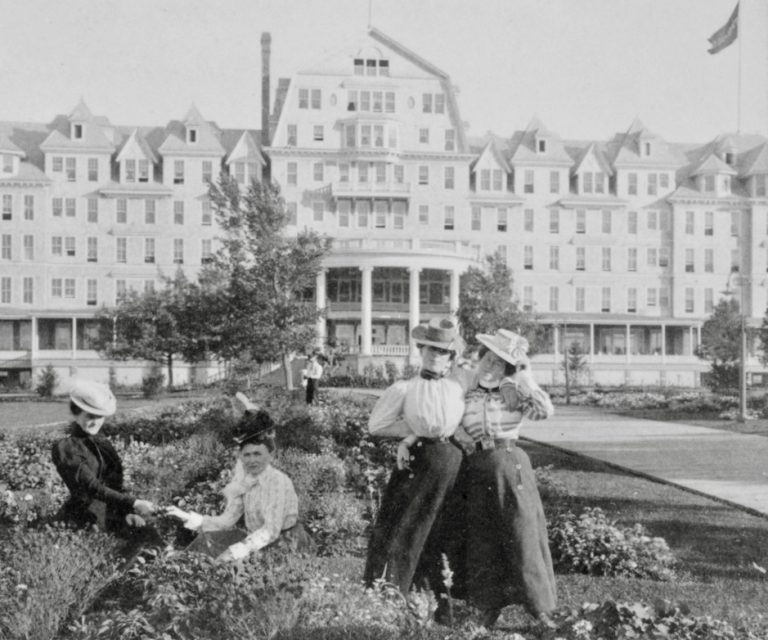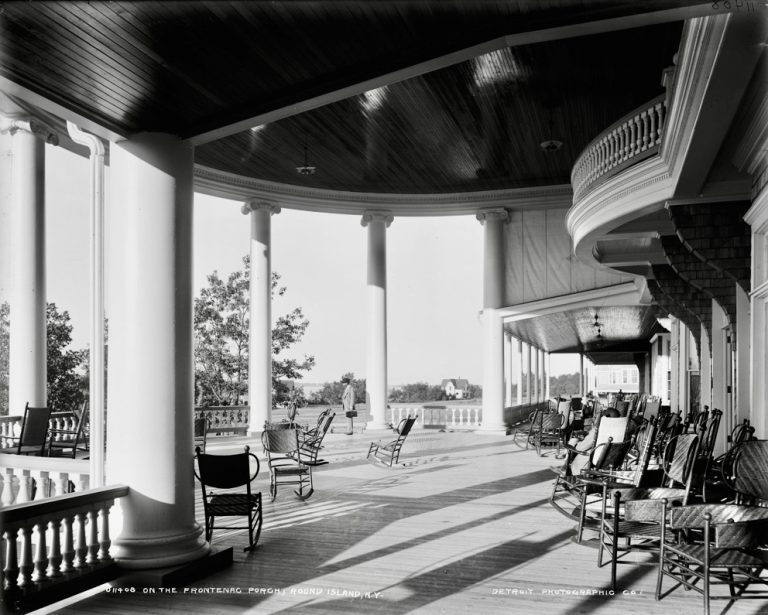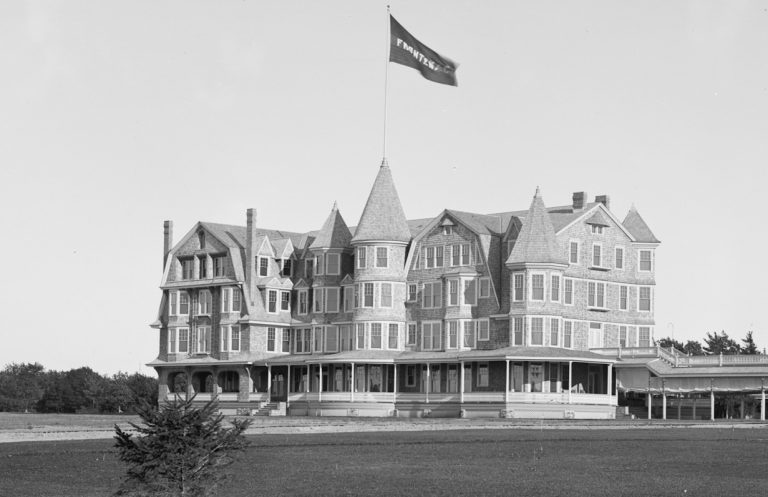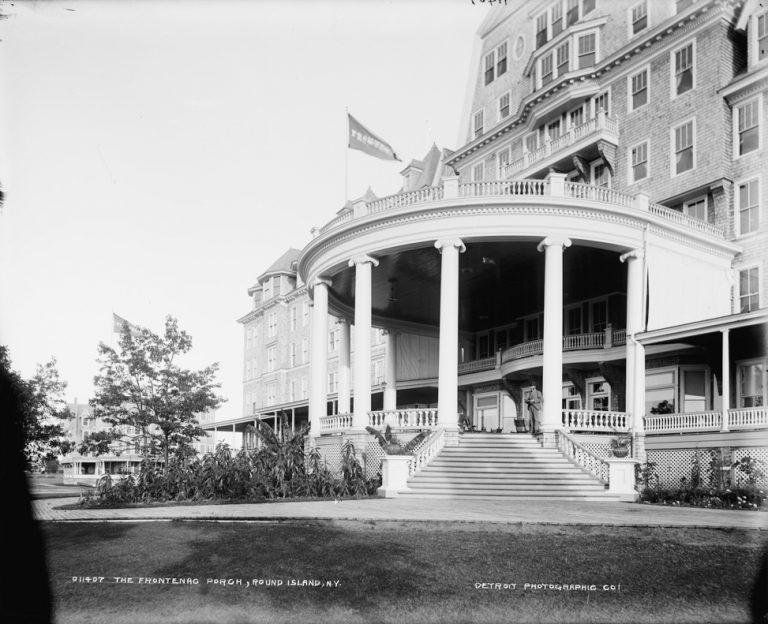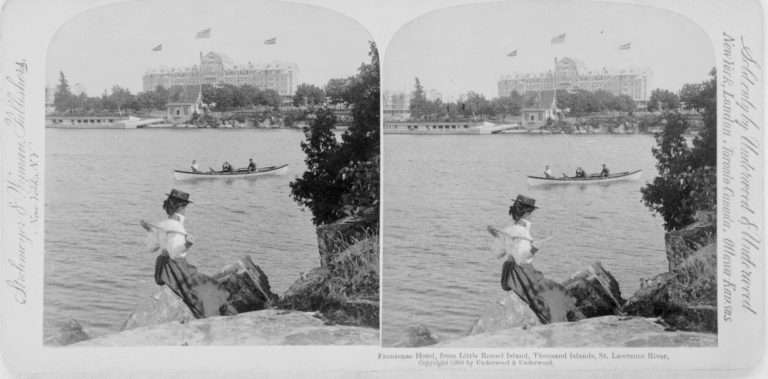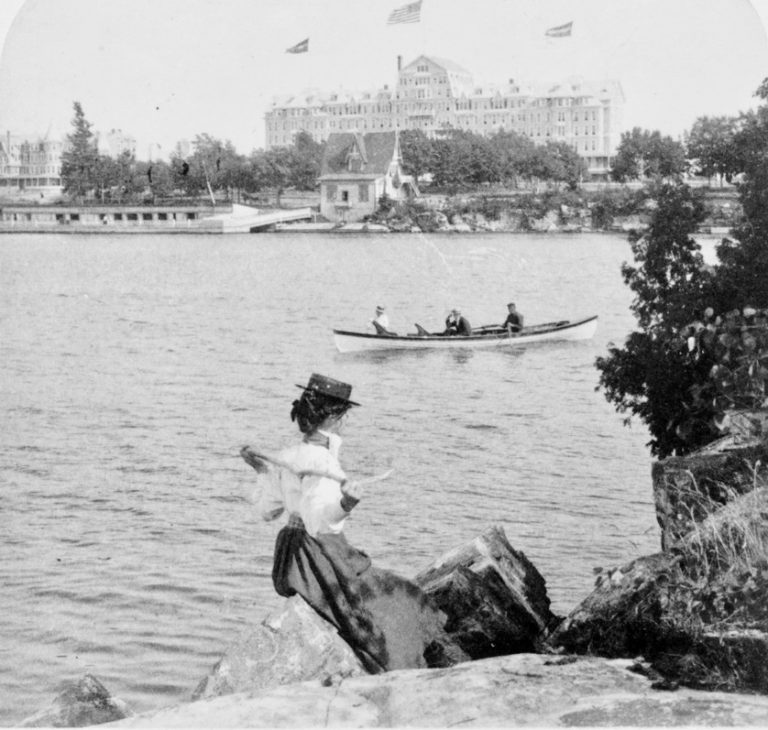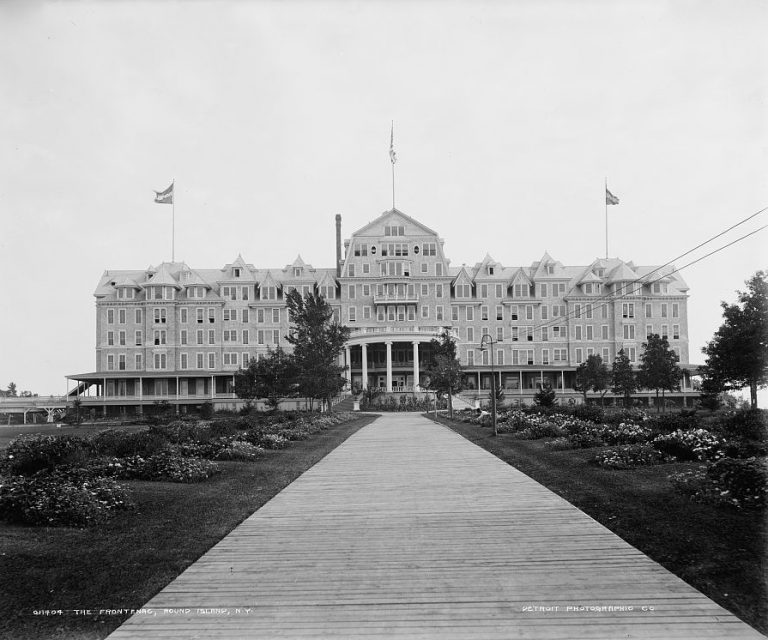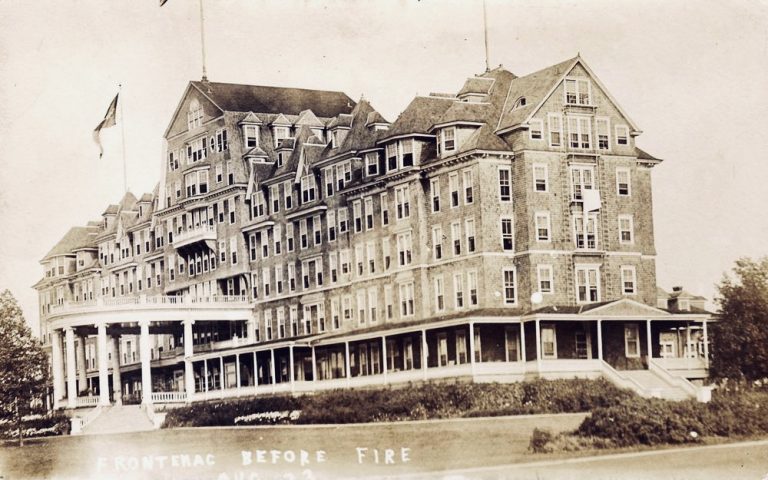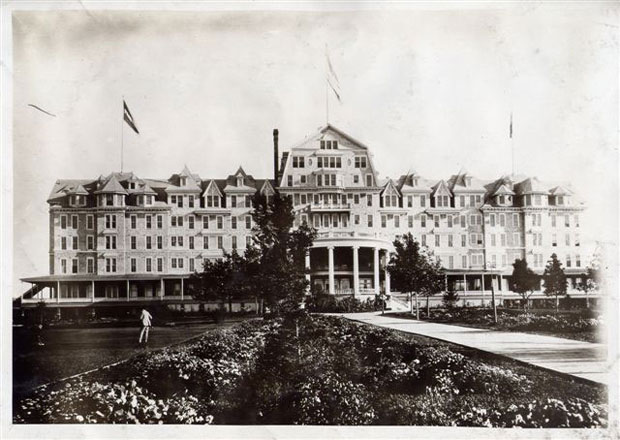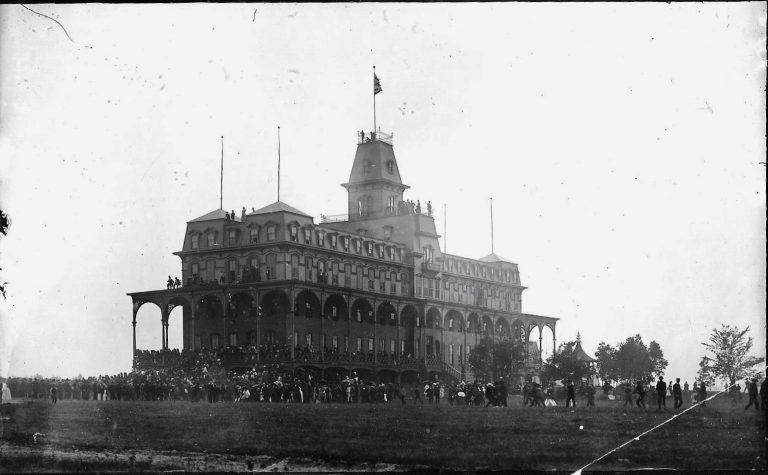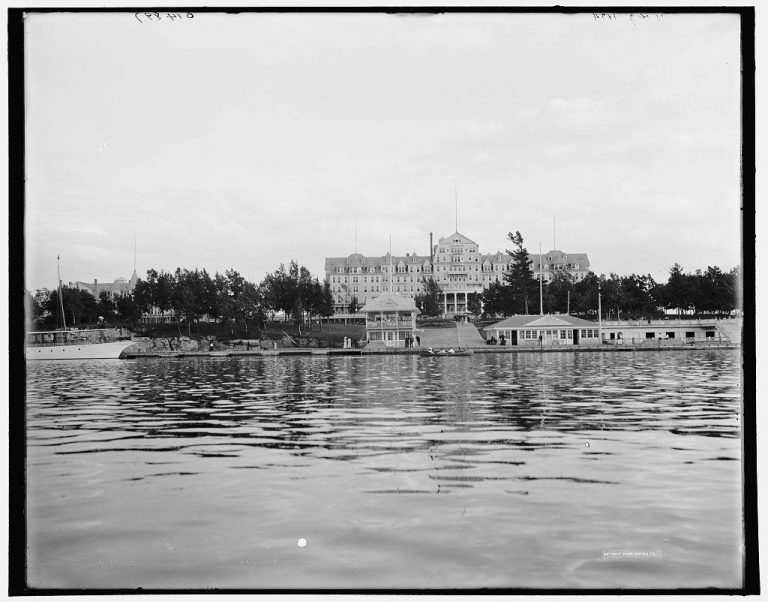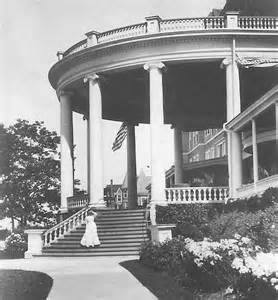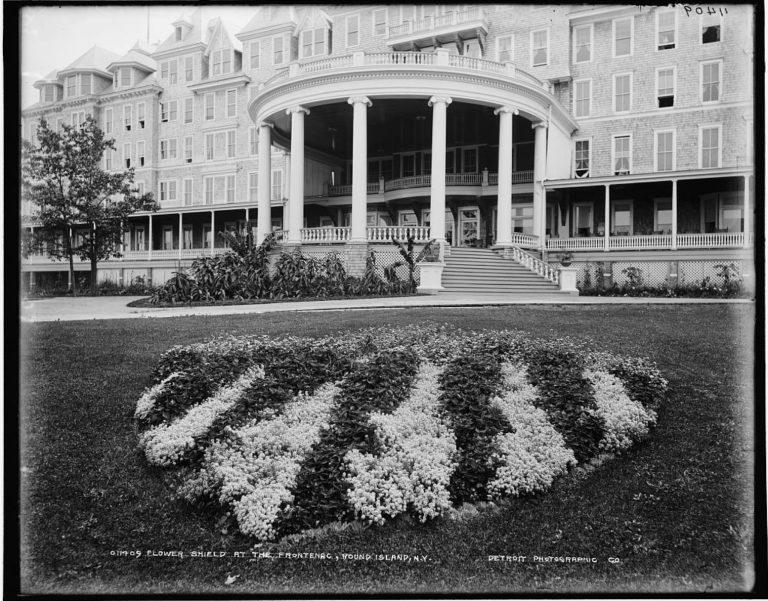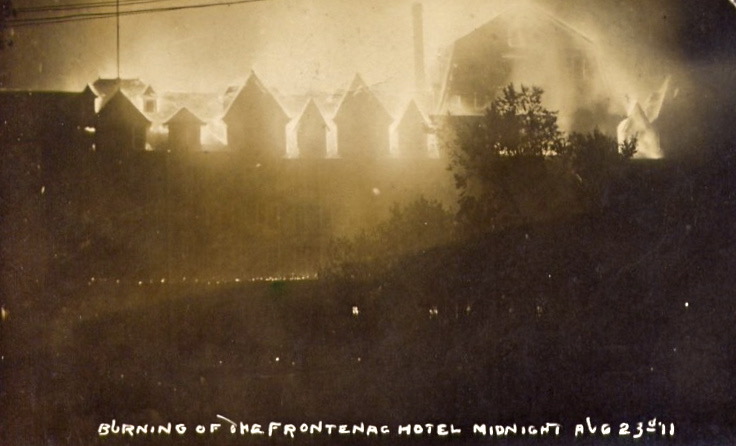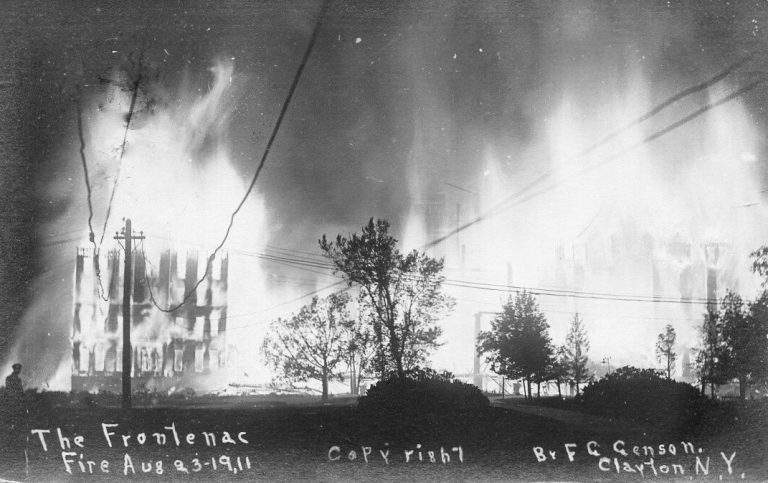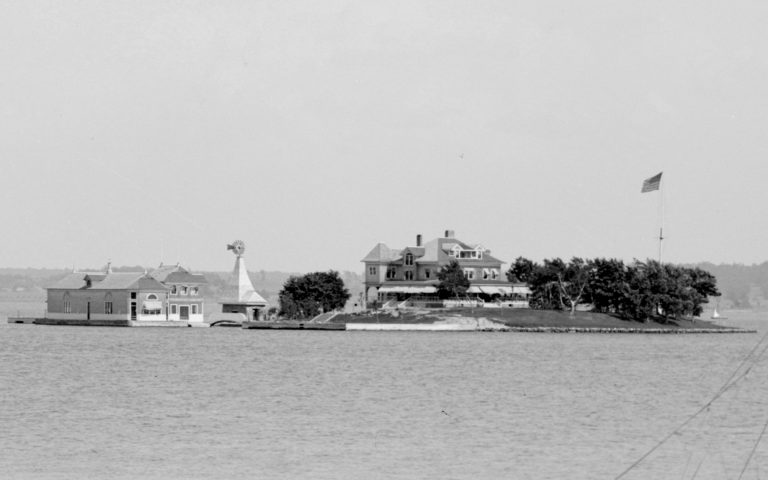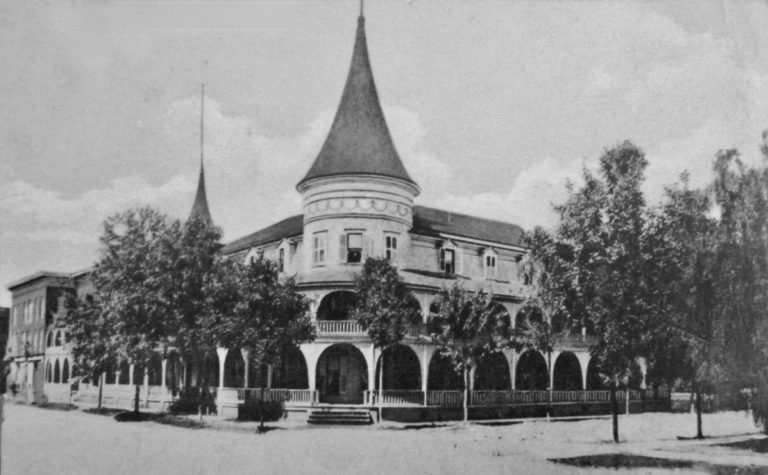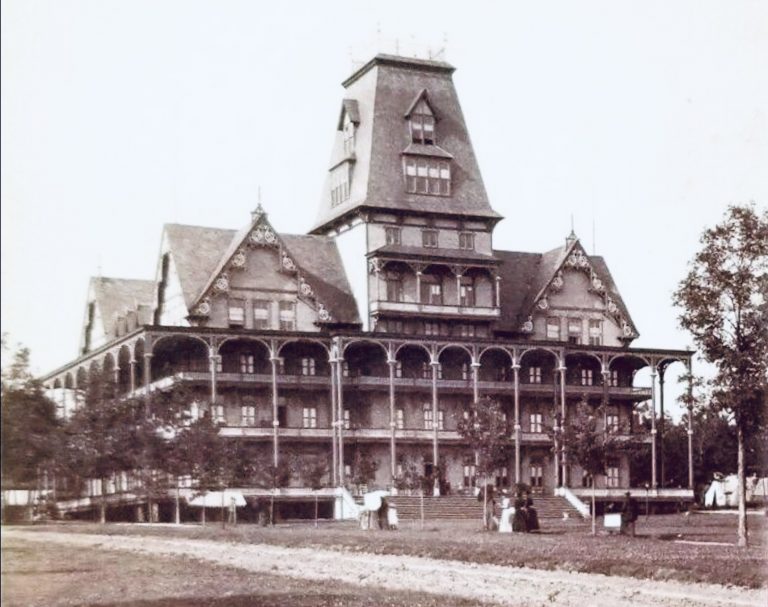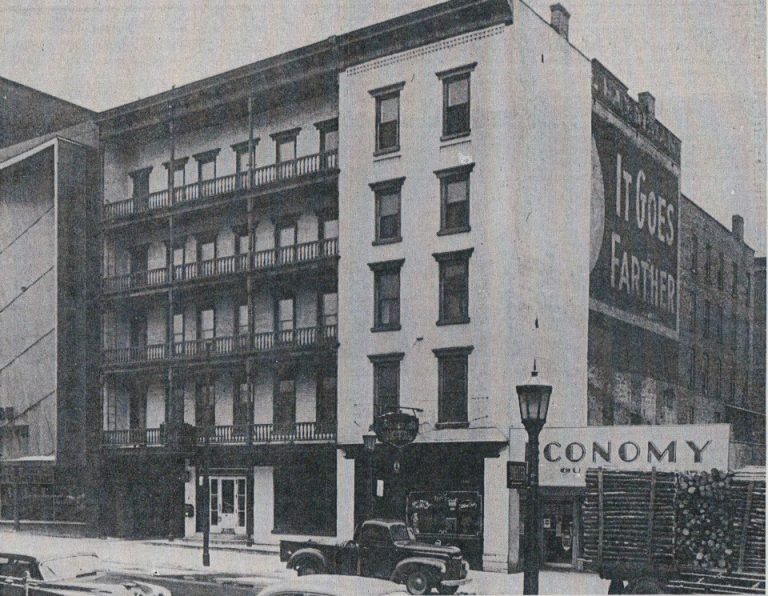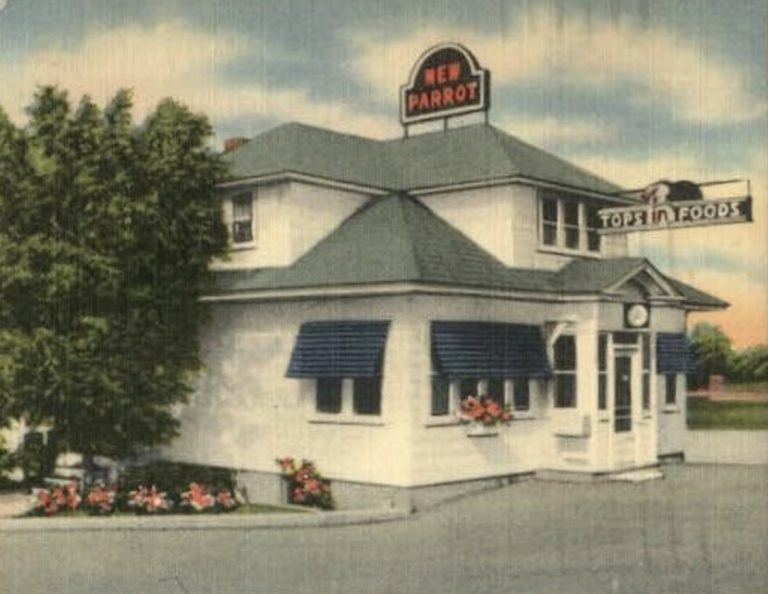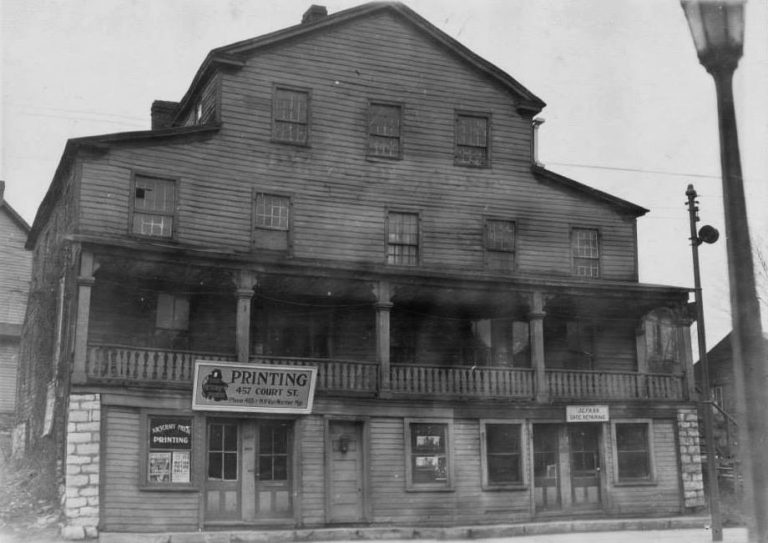The Frontenac Hotel History From 1878 – 1911
The Frontenac Hotel was originally conceived as Round Island House in 1878, undergoing major renovations just 10 years later in 1888, when it would change its name. It was one of many large hotels built in the Gilded Age along the St. Lawrence River, which included the Thousand Island House in Alexandria Bay, N.Y.
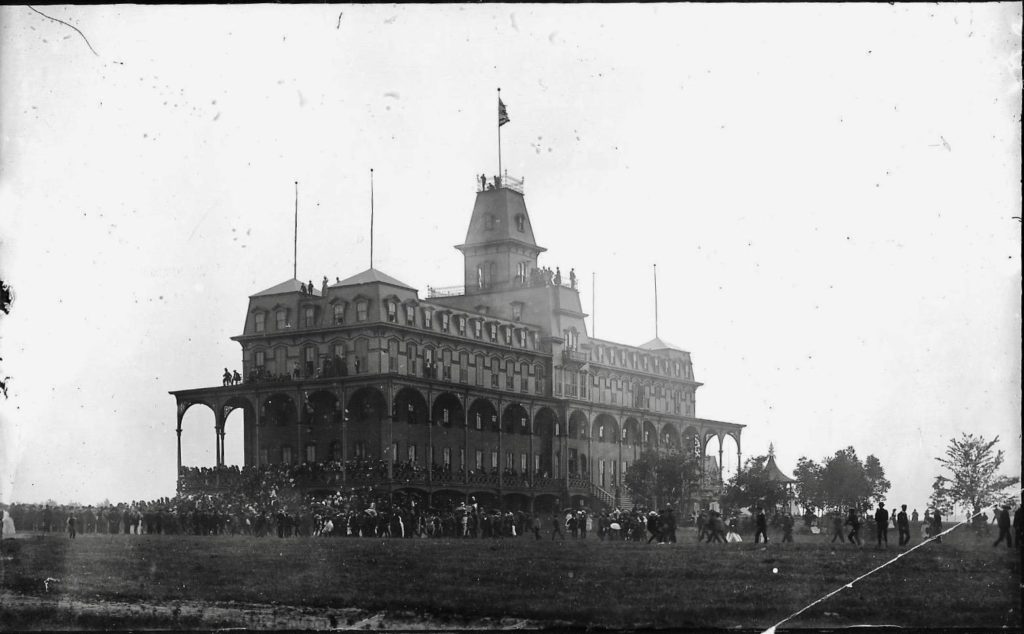
In 1888, Round Island House would undergo a major renovation and rebranding to “The Frontenac.” The changes made to the structure wouldn’t be significant as the later changes, yet they were still noticeable per the photo below.
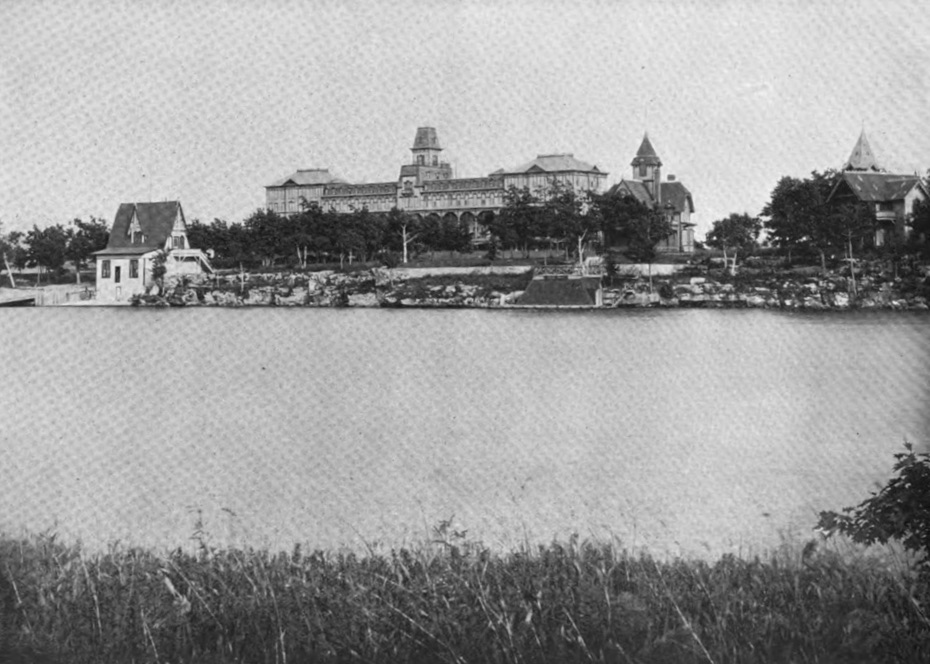
In 1898, Charles G. Emery, owner of Emery’s Castle on nearby Calumet Island, purchased a controlling interest in the Frontenac Hotel and rebuild it into “the grandest hotel structure found anywhere outside of the largest cities, and in point of beauty, convenience and location second to none in the country.”
In 1899, the Watertown Daily Times would celebrate the New Frontenac Hotel’s grand re-opening on July 1, stating the following–
A NEW FRONTENAC
Mammoth Palace Hotel Erected On Round Island
C. G. Emery’s Enterprise
A Splendid Structure, Provided With Every Luxury and Many Special Attractions For Summer Tourists and Sojourners at the Islands.
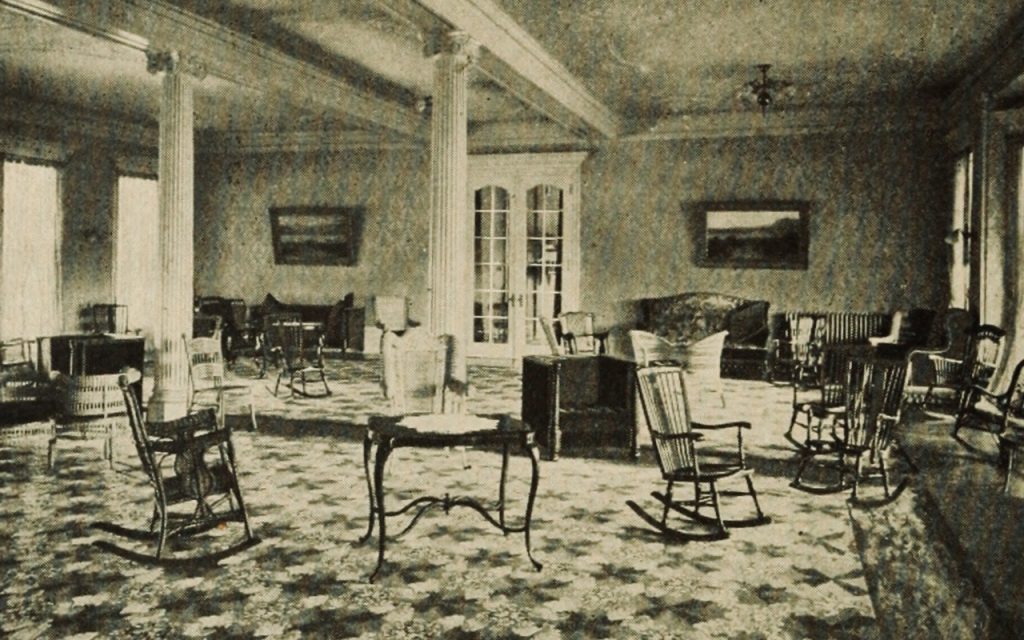
Clayton, June 24 – The Tourist, upon returning to the river after an absence of several months will be greatly surprised seeing the magnificent New Frontenac hotel, situated on Round Island, and located at the site of the old hotel of the same name. And as they look upon this grand structure they will wonder that so much could have been accomplished in such a short period of time.
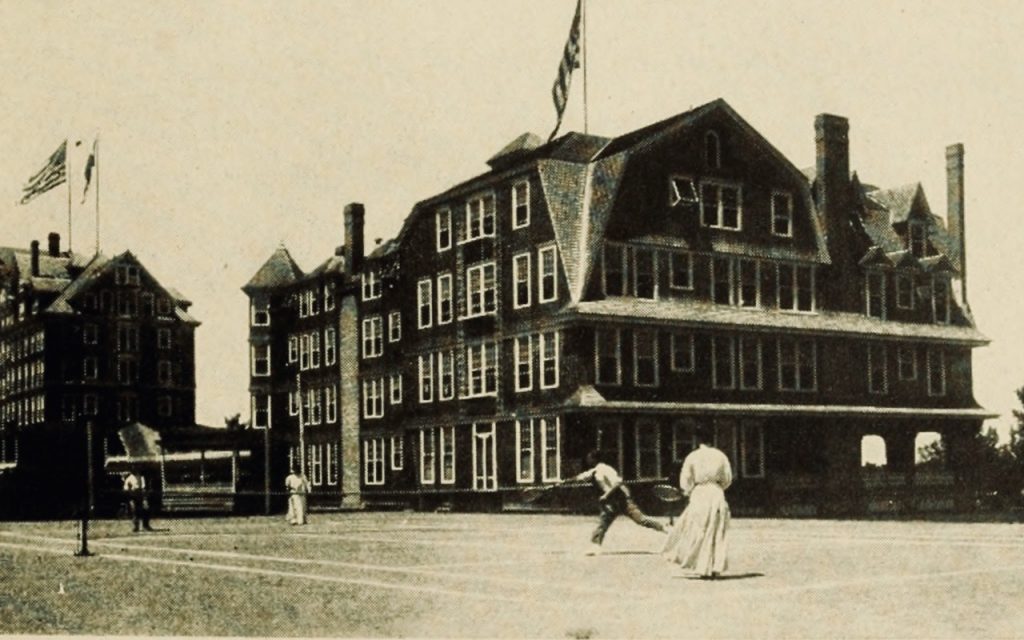
Charles G. Emery, the well-known river property owner, after purchasing the controlling interest of the hotel property of the Round Island company, decided to rebuilt the old hotel which, under the able management of E. D. Dickenson, of Syracuse, has been found too small to meet the growing demand for accommodation by the river tourists. Mr. Emery, with his business foresight and his thousands ready for investment, decided to rebuild the hotel, making it the grandest hotel structure found anywhere outside of the largest cities, and in point of beauty, convenience and location second to none in the country. The plans were prepared by J. W. Davison, of New York City, who also superintended the work.
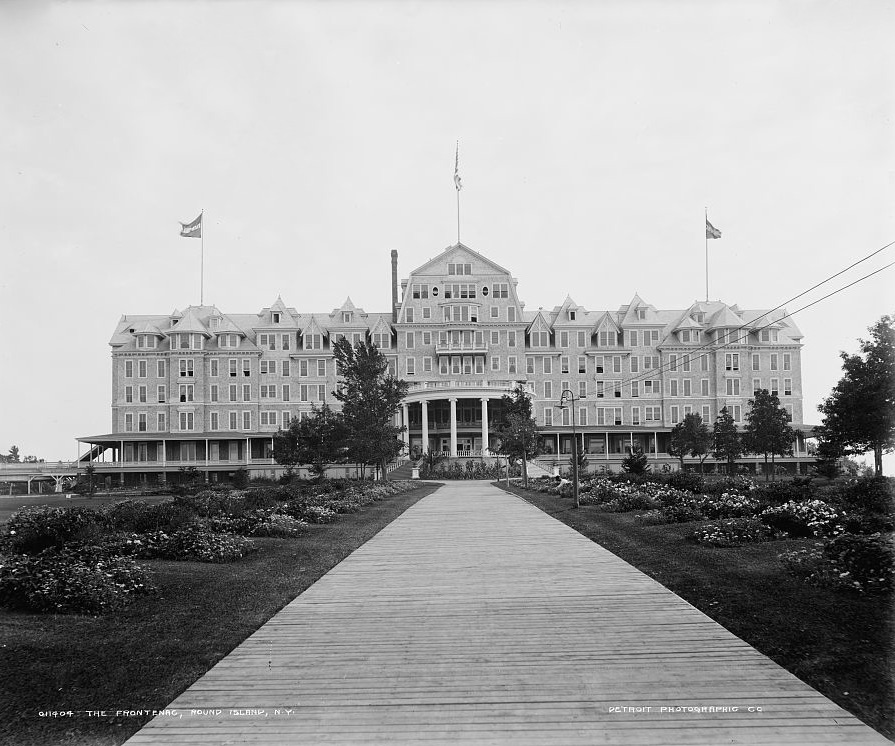
Another round of renovations just 10 years later again would lead to another re-branding with the trendy “New” as part of its moniker.
Unfortunately, like many hotels from the gilded era, the hotel would fall victim to fire in 1911.
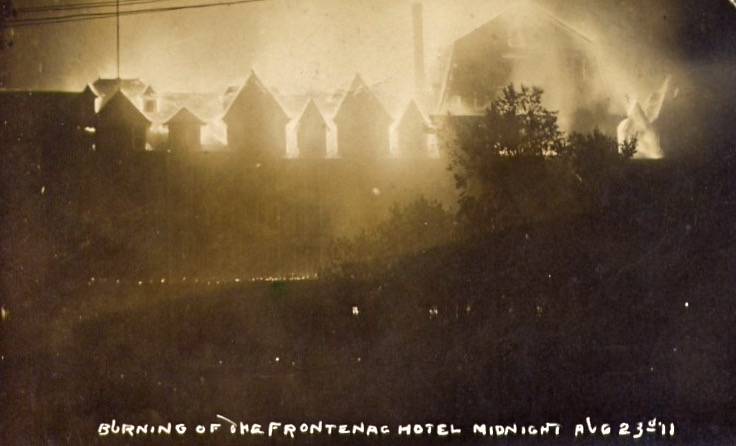
In its August 24 edition, the Watertown Daily Times front page leading story reported on the fire at the Frontenac Hotel–
Hotel Frontenac Burns To The Ground, One Man Is Reported Missing
Frontenac, August 24 – The Palatial Summer hotel, The Frontenac, One of the most beautiful and elaborate summer hotels in the country, is today burned to the ground, together with its contents. The loss is about $750,000 and is partially covered with insurance. Joseph Calhoun, a river guide, is missing and is believed to have burned to death. The guests of the hotel escaped, with most of their baggage, but much was stolen by vandals who took advantage of the excitement. The guests are quartered in other hotels and cottages along the river. The annex was saved.
Fire Started In Men’s Dormitory
The fire started in a separate building, the men’s dormitory, about 150 feet from the hotel proper, and is believed to have been started from a cigarette. The flames were discovered about 9:30 last night and quickly spread through the building. In this building the bellboys and other male help of the hotel were mostly asleep, and they saved very little of their clothing. Some escaped only in their night clothing and others lost considerable sums of money which was in their trunks.
Spreads to Main Building
The dormitory was soon in flames and the (?) communicated to the kitchen of the main building. This was soon wrapped in flames and the dining room of the hotel caught fire. Not until this time was an effort made to save the furnishing of the hotel. The automatic fire alarm through the hotel was sounded. As the hour was early, there were few of the guests asleep. The guests had about two ours in which to save their belongings and nearly everything was saved.
Please visit the link to read more.
Initially, discussions of rebuilding the hotel would occur, but in the end, like many of the hotels lost in fires of the early 1900s, the Frontenac Hotel would not be replaced.
A short video from ReelNostalgia on YouTube with more info and photos:
